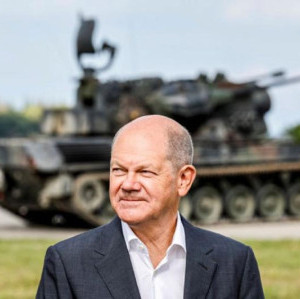This week, defense ministers of the NATO member countries are going to hold the first Europe-wide review of national cybersecurity strategies. Experts believe that such issues are increasingly being discussed at a high level, which shows the growing importance of the IT sector on the national scale. According to the Secretary General of NATO, Anders Fogh Rasmussen, NATO's systems face growing cyberattacks. "So far we have managed to relatively successfully defend our systems. And we will continue to develop cybersecurity," said the official.
And just the day before, the Central House of Journalists hosted an international round table "NATO's new recommendations on war in cyberspace: an invitation to a dialogue or provocation? International evaluation and opinion from Russia." It was attended by leading professionals of the information industry, representatives of the public authority, the diplomatic corps, the expert-analytical community and the media of Russia, the CSTO and NATO countries.
The immediate occasion of the round table was the appearance of the so-called "Tallinn Manual" (TM), which sets out the NATO experts' views on international legal aspects of modern information wars. The document caused a mixed reaction. The purpose of the discussion in Domjour was the development of the expert community's consolidated position on NATO's initiatives in the information sphere. The objective discussion of the TM provisions acquires additional relevance in light of the forthcoming annual conference of the NATO Cyber Security to be held in Tallinn.
The representative of the General Staff of Russia's Armed Forces Konstantin Peschanenko called the Tallinn Manual the first attempt to legitimize the cyberwar which cannot but give rise to concern. In particular, the TM allows cyber attacks to target nuclear power plants, dams, dikes. Such an approach is contrary to international humanitarian law, the expert believes. In this regard, said Peschanenko, all the expert community should carefully keep track of the possibility of applying the provisions of the TM to prevent the recurrence of Chernobyl disaster to occur again.
Another representative of the General Staff of Russia's Armed Forces Sergei Komov said that the TM project did not appear to surprise Russia. At the same time, the expert notes, he has not received from his NATO counterparts any response to the question, why they had not got involved any Russian and Chinese experts in the development of the TM. The representative of the General Staff is convinced that the cyber security and warfare issues should be solved within the framework of the UN, and not behind the scenes by a narrow circle of people. By the way, Sergei Komov believes that NATO was too hasty to call the TM a manual; it is rather a research report.
Deputy Head of the Euro-Atlantic Studies Department of the Russian Institute of Strategic Studies, Alexander Bedritsky did not agree with him. In his opinion, the TM is no joke, because it will be worked out first on the expert level, and then introduced in the official documents.
According to an employee of the Department of New Challenges and Threats of the Ministry of Foreign Affairs of the Russian Federation, Alexander Radovitsky, information security issues should be addressed by the world community, and not at the level of individual countries or regional associations. He stressed that Russia has long put the Western partners the questions of counteracting the danger of cyberwar and insisted on a common strategy to combat it. Washington and NATO without denying such a need, at the same time sought to become leaders in the information arms race. "The attack on the Busher NPP computer system and Internet campaigns unleashing color revolutions and the Arab Spring is an apparent attempt to play out the internet card in its geopolitical interests," said the spokesman of the Russian MFA. However, subsequent events when unidentified hackers struck a telling blow to U.S. banks and corporations showed that also even the not so developed states with regard to computers, are able to damage the Western countries."
President of the National and International Security Foundation, Leonid Shershnev called the TM, in fact, a provocative appeal to war. "It is a challenge for Russia, the more especially as the United States has in fact created cyberforces producing 85% of the world's information product," he stressed. In his view, the Cold War has not ended in 1991, but adopted a new form of information warfare, and the TM is Washington's another psychological operation. Unfortunately, the expert summarizes, Russia is seriously lagging behind in this field, whilst in fact the dominance in cyberspace helps to also dominate in the military and economic fields. "We see the color revolutions all over the world, we have lost the Soviet Union in this information warfare," Leonid Shershnev continued. "Therefore, the world's future will be determined just in cyber wars."
In support of the above said the coordinator of the Anti-NATO social center Irina Filatova reminded how Russia lost the information warfare in Georgia during the August 2008 conflict. She cited the Arab Spring as an example when information actions swung the situation in the country much better than combat actions. The expert urged to develop at the national level Russia's attitude towards cyber warfare.
Summing up the discussion, the roundtable participants concurred that the document reflects NATO's confrontational line on information security, and hope that the document will be a clear and unequivocal call to action for the Russian state bodies. From their point of view, they have to see about the development of their own document - an answer to the TM, but not in terms of response, but in terms of some proactive actions. Otherwise, our country may be left with nothing, as in 1991.









